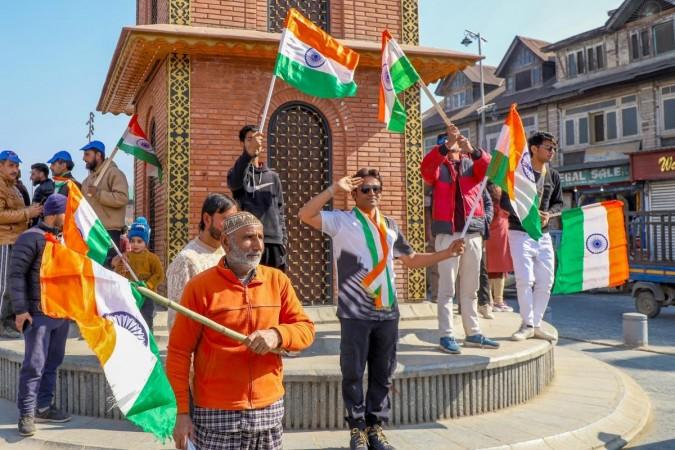
As Jammu and Kashmir commemorate six years since the abrogation of Article 370, India has reiterated its constitutional and sovereign right to fully integrate the region into the Union. This assertion comes amidst ongoing challenges posed by Pakistan, which continues to play a destabilizing role in peace efforts. The United Nations Security Council (UNSC) resolutions on Kashmir, particularly Resolution 47 of 1948, had initially called for Pakistan to withdraw its forces from the region as a prerequisite to any plebiscite. However, Pakistan's persistent refusal to comply with this foundational condition has rendered the resolution "unimplementable."
Despite numerous international appeals, Islamabad has maintained and supported terror infrastructure across the Line of Control (LoC), thereby undermining diplomatic efforts and regional stability. India's decision to revoke Article 370 on August 5, 2019, was upheld by the Supreme Court in December 2023 as constitutionally valid and consistent with the principles of Indian federalism. The Court emphasized that Article 370 was always intended as a temporary provision, designed to facilitate the transitional integration of Jammu and Kashmir into the Indian Union. The move, therefore, does not violate any international agreements or the UN Charter, contrary to Pakistan's assertions.
Security agencies have reported a notable shift in the operational tactics of Pakistan-based terror groups. With dwindling local support in Kashmir, these outfits, such as Lashkar-e-Taiba (LeT) and its proxy, The Resistance Front (TRF), have increasingly relied on foreign fighters to execute attacks. The recent Pahalgam attack, which claimed 26 innocent lives, was carried out by Pakistani nationals, as confirmed by recovered identity documents and training footage from Lashkar's Muridke headquarters. This trend underscores the waning appeal of militancy among Kashmiri youth and the growing disconnect between local aspirations and Pakistan's proxy war.

Diplomatic and Military Dynamics
India has responded with targeted counter-terror operations and intensified diplomatic engagement. The designation of TRF as a global terrorist organization by the US in July is seen as a major diplomatic win for New Delhi. This move highlights the international community's recognition of the threat posed by such groups and underscores the importance of collaborative efforts to combat terrorism. The US's decision to label TRF as a terrorist organization aligns with India's long-standing position on the need to address cross-border terrorism and its impact on regional peace.
The situation in Kashmir is further complicated by the historical and geopolitical dynamics between India and Pakistan. The rivalry between the two nations is deeply rooted in ideological, territorial, and power-political antagonisms. This longstanding conflict has often been marked by military confrontations and diplomatic standoffs, with both countries vying for influence and control over the region.
In recent years, India's approach to addressing the Kashmir issue has evolved, with a focus on strengthening its military capabilities and enhancing its diplomatic outreach. The launch of airstrikes across the Line of Control and deeper into Pakistani territory, including sites in Muridke and Bahawalpur, as part of "Operation Sindoor," signaled India's intent to establish military dominance and deter future acts of aggression. These operations, while controversial, serve as a domestic political message, reinforcing a strongman image in line with the current government's political narrative.














